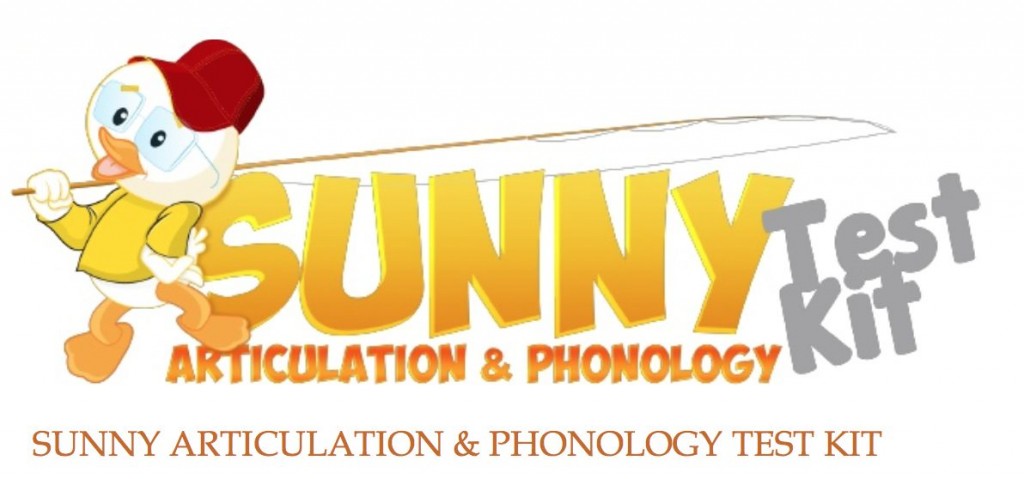 Recently, I’ve participated in various on-line and in-person discussions with both school-based speech language pathologists (SLPs) as well as medical health professionals (e.g., neurologists, pediatricians, etc.) regarding their views on the need of formal diagnosis for school aged children with suspected alcohol related deficits. While their responses differed considerably from: “we do not base intervention on diagnosis, but rather on demonstrated student need” to “with a diagnosis of ASD ‘these children’ would get the same level of services“, the message I was receiving loud and clear was: “Why? What would be the point?” So today I decided to share my views on this matter and explain why I think the diagnosis matters.
Recently, I’ve participated in various on-line and in-person discussions with both school-based speech language pathologists (SLPs) as well as medical health professionals (e.g., neurologists, pediatricians, etc.) regarding their views on the need of formal diagnosis for school aged children with suspected alcohol related deficits. While their responses differed considerably from: “we do not base intervention on diagnosis, but rather on demonstrated student need” to “with a diagnosis of ASD ‘these children’ would get the same level of services“, the message I was receiving loud and clear was: “Why? What would be the point?” So today I decided to share my views on this matter and explain why I think the diagnosis matters.
Continue reading Why is FASD diagnosis so important?
Category: Assessment
Why Developmental History Matters: On the Importance of Background Information in Speech-Language Assessments
 Lately I’ve been seeing quite a few speech language therapy reports with minimal information about the child in the background history section of the report. Similarly, I’ve encountered numerous SLPs seeking advice and guidance relevant to the assessment and treatment of difficult cases who were often at a loss when asked about specific aspects of their client’s background family history in order to assist them better. They’ve never delved into it beyond a few surface details! Continue reading Why Developmental History Matters: On the Importance of Background Information in Speech-Language Assessments
Lately I’ve been seeing quite a few speech language therapy reports with minimal information about the child in the background history section of the report. Similarly, I’ve encountered numerous SLPs seeking advice and guidance relevant to the assessment and treatment of difficult cases who were often at a loss when asked about specific aspects of their client’s background family history in order to assist them better. They’ve never delved into it beyond a few surface details! Continue reading Why Developmental History Matters: On the Importance of Background Information in Speech-Language Assessments
Why Do I Have to Tell You What’s Wrong with My Child? Or On the Importance of Targeted Assessments
A few days ago I received a phone call from a parent who was seeking a language evaluation for her child. As it is my policy with all assessments, I asked her to fill out an intake and a checklist to identify her child’s specific areas of difficulty in order to compile a comprehensive and targeted testing battery. Her response to me was: “I’ve never heard of this before? Why do I have to tell you what’s wrong with my child? Why can’t you figure it out?” Similarly, last week, another parent has questioned: “So you can’t do the assessment without this form?” Given the above questions, and especially because May is a Better Hearing and Speech Month #BHSM, during which it is important to raise awareness about communication disorders, I want to take this time to explain to parents why performing targeted speech language assessments is SO CRUCIAL.
To begin with it is very important to understand that speech and language can be analyzed in many different ways beyond looking at pronunciation, vocabulary or listening and speaking skills.
Targeted areas within the scope of practice of pediatric school based speech language pathologists include the assessment of:
- SPEECH
- The child may have difficulties with pronunciation of sounds in words, stutter, clutter, have a lisp or have difficulties in the areas of voice, prosody, or resonance. For the majority of the above difficulties completely different tests and testing procedures may be needed in order to appropriately assess the child.
- LANGUAGE
- Receptive Language
- Ability to follow directions, answer questions, recall sentences, understand verbal messages, as well as comprehend orally presented text
- Memory and Attention
- Also see executive function skills
- Expressive Language
- Vocabulary knowledge and use, formulation of words and sentences as well as production of narratives or stories
- Problem Solving
- Verbal reasoning and critical thinking skills are very important for successful independent decision making as well as for interpretation of academically based texts and complete assignments
- Pragmatic Language
- Successful use of language for a variety of communicative purposes
- Initiate and maintain topics, maintain conversational exchanges, request help, etc
- Successful use of language for a variety of communicative purposes
- Social Emotional Competence
- Effective interpersonal negotiation skills, compromise and negotiation abilities, as well as perspective taking are integral to academic and social success. These abilities are often compromised in children with language disorders and require a thorough assessment
- Executive Functions (EFs)
- These are higher level cognitive processes involved in inhibition of thought, action and emotion, which are located in the prefrontal cortex of the frontal lobe of the brain.
- Major EF components include working memory, inhibitory control, planning, and set-shifting. EFs contribute to child’s ability to sustain attention, ignore distractions, and succeed in academic settings.
- Receptive Language
- READING DISABILITIES AND DYSLEXIA
- Phonological Awareness
- Reading Ability
- Writing
- Spelling
One General Language Test Does Not Fit All!
Children with speech and language disorders do not necessarily display weaknesses in all affected areas but may only display difficulties in selected few.

To illustrate, high functioning students on the autistic spectrum may have very strong academic skills related to comprehension and expression of language but may display significant social pragmatic language weaknesses, which will not be apparent on general language testing (e.g., administration of Clinical Evaluation of Language Fundamentals -5). Thus, the administration of a general language test will be contraindicated for these students as it will only show typical performance on these tests and will not qualify them for targeted language based services that they need. However, by administering to them a testing battery composed of tests sensitive to social pragmatic language competence will highlight their areas of difficulty and result in a creation of a targeted intervention plan to improve their abilities in the affected areas.

Similarly, children at risk for reading disabilities will not benefit from the administration of general language testing either, since their deficits may lie in the areas of sound discrimination, isolation, or blending as well as as impaired decoding ability. So the administration of tests sensitive to phonological awareness and emergent reading ability would be much more relevant.

This is exactly why taking an extra step and filling out a simple form will result in a much more targeted and beneficial speech language assessment for the child. The goal of any competent professional assessment is to eliminate the administration of unnecessary and irrelevant tests and focus only on the administration of instruments directly targeting the areas of difficulty that the child presents with. Given the fact that assessment of language covers so many broad areas, it makes perfect sense to ask parents to fill out relevant checklists/intakes as a routine part of a pre-assessment procedure. Otherwise, even after observations in school setting, I would still just be blindly ‘fishing’ for deficits without really knowing whether I will ‘accidentally stumble upon them’ using a general test at hand.
Of course, even checklists need to be targeted by age and areas of functioning. Here’s how I use mine. When performing comprehensive fist time assessments I ask the parent to fill out the comprehensive checklists based on the child’s age. These are broken down as follows:
- Early Intervention (0-36 months)
- Preschool (3-5:11 years of age)
- School-Age (6:0-11;11 years of age)
- Adolescent (12-18 years of age)
However, oftentimes when I perform reassessments or second opinion evaluations, I may ask the parent to fill out checklists pertaining to specific, known, areas of difficulty. These currently include:
After the parent fills the checklist out, the child’s areas of difficulty literally jump out from the pages. Now, all I need to do is to choose the appropriate testing instruments, which will BEST help me determine the exact nature and cause of the child’s deficits and I am all set. I administer the testing, interpret the results and write a comprehensive report detailing which therapy goals will be targeted. And this is why pre-assessment checklist administration is so important.
Helpful Resources:
- The Checklists Bundle
- Assessment Checklist for Preschool-Aged Children
- Assessment Checklist for School-Aged Children
- Speech Language Assessment Checklist for Adolescents
- Social Pragmatic Deficits Checklist for Preschool Children
- Social Pragmatic Deficits Checklist for School-Aged Children
- Language Processing Deficits Checklist for School-Aged Children
Articulation Assessment ToolKt
 In February 2013 I did a review of the Sunny Articulation Test by Smarty Apps. At that time I really liked the test but felt that a few enhancements could really make it standout from other available articulation tests and test apps on the market. Recently, the developer, Barbara Fernandes, contacted me again and asked me to take a second look at the new and improved Sunny Articulation and Phonology Kit (SAPT-K), which is what I am doing today. Continue reading Articulation Assessment ToolKt
In February 2013 I did a review of the Sunny Articulation Test by Smarty Apps. At that time I really liked the test but felt that a few enhancements could really make it standout from other available articulation tests and test apps on the market. Recently, the developer, Barbara Fernandes, contacted me again and asked me to take a second look at the new and improved Sunny Articulation and Phonology Kit (SAPT-K), which is what I am doing today. Continue reading Articulation Assessment ToolKt
The Executive Functions Test-Elementary (EFT-E): What SLPs and Parents Need to Know
 Recently I’ve purchased the Executive Functions Test-Elementary (EFT-E) by Linguisystems and used it with a few clients in my private practice and outpatient hospital-based school program. The EFT-E is a test of language skills that affect executive functions of working memory, problem solving, inferring, predicting outcomes, and shifting tasks. For those of you not familiar with executive functions (EFs), they are higher level cognitive processes involved in inhibition of thought, action and emotion, which are located in the prefrontal cortex of the frontal lobe of the brain. Continue reading The Executive Functions Test-Elementary (EFT-E): What SLPs and Parents Need to Know
Recently I’ve purchased the Executive Functions Test-Elementary (EFT-E) by Linguisystems and used it with a few clients in my private practice and outpatient hospital-based school program. The EFT-E is a test of language skills that affect executive functions of working memory, problem solving, inferring, predicting outcomes, and shifting tasks. For those of you not familiar with executive functions (EFs), they are higher level cognitive processes involved in inhibition of thought, action and emotion, which are located in the prefrontal cortex of the frontal lobe of the brain. Continue reading The Executive Functions Test-Elementary (EFT-E): What SLPs and Parents Need to Know
Creating Successful Team Collaboration: Behavior Management in the Schools
 In March 2014, ASHA SIG 16 Perspectives on School Based Issues, I’ve written an article on how SLPs can collaborate with other school based professionals to successfully work with children exhibiting challenging behaviors secondary to psychiatric diagnoses and emotional and behavioral disturbances. In this post I would like to summarize the key points of my article as well as offer helpful professional resources on this topic. Continue reading Creating Successful Team Collaboration: Behavior Management in the Schools
In March 2014, ASHA SIG 16 Perspectives on School Based Issues, I’ve written an article on how SLPs can collaborate with other school based professionals to successfully work with children exhibiting challenging behaviors secondary to psychiatric diagnoses and emotional and behavioral disturbances. In this post I would like to summarize the key points of my article as well as offer helpful professional resources on this topic. Continue reading Creating Successful Team Collaboration: Behavior Management in the Schools
Comprehensive Assessment of Monolingual and Bilingual Children with Down Syndrome

 Assessing speech-language abilities of children with genetic disorders and developmental disabilities is no easy feat. Although developmental and genetic disorders affecting cognition, communication and functioning are increasingly widespread, speech-language assessment procedures for select populations (e.g., Down Syndrome) remain poorly understood by many speech-language professionals, resulting in ineffective or inappropriate service provision. Continue reading Comprehensive Assessment of Monolingual and Bilingual Children with Down Syndrome
Assessing speech-language abilities of children with genetic disorders and developmental disabilities is no easy feat. Although developmental and genetic disorders affecting cognition, communication and functioning are increasingly widespread, speech-language assessment procedures for select populations (e.g., Down Syndrome) remain poorly understood by many speech-language professionals, resulting in ineffective or inappropriate service provision. Continue reading Comprehensive Assessment of Monolingual and Bilingual Children with Down Syndrome
Spotlight on Social Language Competence: When is a high subtest score a cause for concern?
 I have been using Social Language Development Tests (SLDT) from Linguisystems since they were first published a number of years ago and I like them a great deal. For those of you unfamiliar with them – there are two versions of SLDT, elementary (for children 6-12 years of age) and adolescent (for children 12-18 years of age). These are tests of social language competence, which assess such skills as taking on first person perspective, making correct inferences, negotiating conflicts with peers, being flexible in interpreting situations and supporting friends diplomatically (SLDT-E). Continue reading Spotlight on Social Language Competence: When is a high subtest score a cause for concern?
I have been using Social Language Development Tests (SLDT) from Linguisystems since they were first published a number of years ago and I like them a great deal. For those of you unfamiliar with them – there are two versions of SLDT, elementary (for children 6-12 years of age) and adolescent (for children 12-18 years of age). These are tests of social language competence, which assess such skills as taking on first person perspective, making correct inferences, negotiating conflicts with peers, being flexible in interpreting situations and supporting friends diplomatically (SLDT-E). Continue reading Spotlight on Social Language Competence: When is a high subtest score a cause for concern?
The risk of social-emotional deficits in language-impaired young children
 In recent years there has been an increase in infants, toddlers and preschoolers diagnosed with significant social-emotional and/or behavioral problems. An estimated 10% to 15% of birth-5 year-old population experience serious social-emotional problems which significantly impact their functioning and development in the areas of language, behavior, cognition and school-readiness (Brauner & Stephens, 2006). Continue reading The risk of social-emotional deficits in language-impaired young children
In recent years there has been an increase in infants, toddlers and preschoolers diagnosed with significant social-emotional and/or behavioral problems. An estimated 10% to 15% of birth-5 year-old population experience serious social-emotional problems which significantly impact their functioning and development in the areas of language, behavior, cognition and school-readiness (Brauner & Stephens, 2006). Continue reading The risk of social-emotional deficits in language-impaired young children
New Product Giveaway: Social Pragmatic Deficits Checklist for Preschool Children
 When it comes to assessment of social pragmatic abilities, the majority of SLP’s often worry about their school age students. Yet social-emotional disturbances and behavioral abnormalities in preschool children (<5 years of age) are more common than you think.
When it comes to assessment of social pragmatic abilities, the majority of SLP’s often worry about their school age students. Yet social-emotional disturbances and behavioral abnormalities in preschool children (<5 years of age) are more common than you think.
Egger & Angold (2006) found that “despite the relative lack of research on preschool psychopathology compared with studies of the epidemiology of psychiatric disorders in older children, the current evidence now shows quite convincingly that the rates of the common child psychiatric disorders and the patterns of comorbidity among them in preschoolers are similar to those seen in later childhood. (p. 313)” Continue reading New Product Giveaway: Social Pragmatic Deficits Checklist for Preschool Children